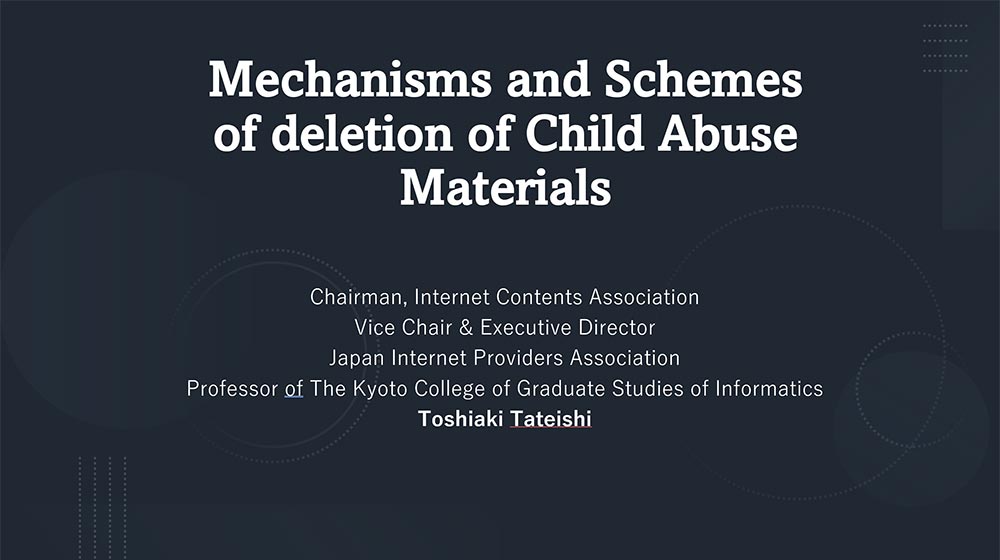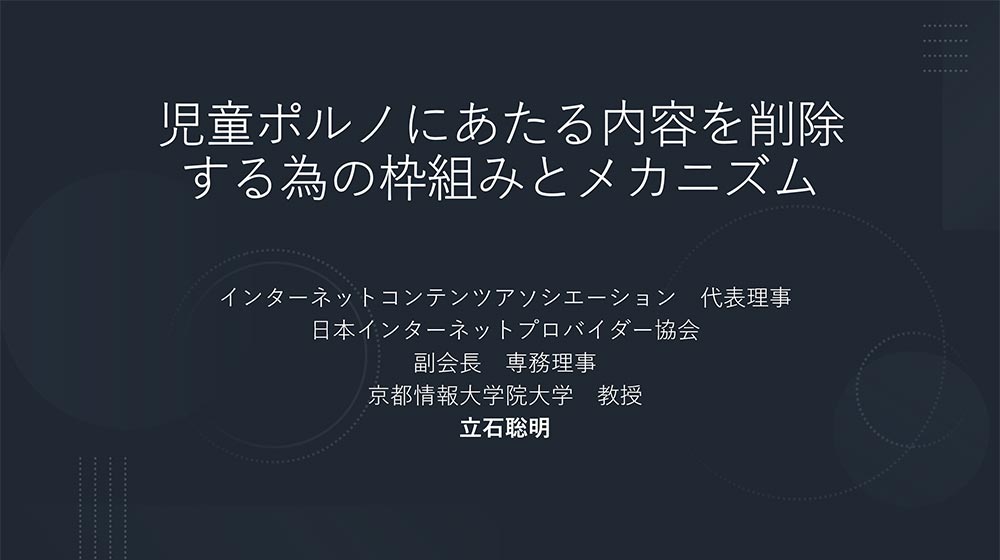Child online safety: Industry engagement and regulation
子どものオンライン安全性: 業界の関与と規制
How has the private sector in Japan adapted to emerging challenges relating to online child sexual abuse and exploitation? In Japan, the blocking of objectionable content (e.g. child porn) tends to be done by the ISP and not the individual user. Japan has set up a system to collect reports and data of these objectionable websites to update the DNS Server (inside the ISP). This prevents an individual user from accessing these websites. While this creates a secure Internet inside Japan, users in Japan may not know the existence of certain external sites deemed objectionable, thereby preventing them full access to Internet contents.
日本の民間セクターは,インターネット上の児童への性的虐待や搾取という新たな課題にどのように対応してきたのだろうか。日本では,好ましくないコンテンツのブロックは個々のユーザではフィルタリングと呼ばれる方法で行われるが,これはあくまで個々人の判断に委ねられる。よって,強制的にユーザがこれらの好ましくないウェブサイトにアクセス出来ないようにするには接続プロバイダーが特別なシステムをネットワークに入れてブロックするしかない。そのためには関連するデータやレポートを収集し,プロバイダー内のDNSサーバーを更新するシステムが構築されている。これにより,個々のユーザがこれらのウェブサイトにアクセスすることを防いでいる。
この方法では当該プロバイダーを利用するユーザ全ての「通信の秘密」を侵害することになるため,運用は細心の注意を払って行っている。
また,この方法は日本国内のインターネットを安全なものにするが,日本のユーザは好ましくないとされる外部のウェブサイトの存在自体を知ることがなく,インターネット上のすべてのコンテンツへのアクセスが阻害された状態となっている。
セッション概要
- Workshop Room 8
- Room C-1
- Child online safety: Industry engagement and regulation
(子どものオンライン安全性: 業界の関与と規制) - #58 // OF // Cybersecurity (18:00 - 19:00)


